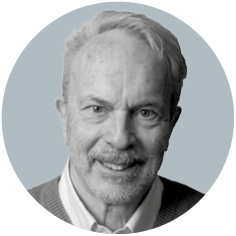Rwandan development not that great
That is obviously one of Paul Kagame’s outstanding qualities. The picture international media paint of his country is much rosier than reality on the ground – if I am to believe the people I recently spoke to in Kigali.
I had not been to the country for six years, and when I recently returned for a conference, I did notice gleaming new buildings and new roads. The hotel’s WIFI system worked. Power cuts due to thunderstorms were rather short. So that’s progress I guess.
I also noted a much higher presence of security forces in the public space. Armed men patrol the streets and guard all kinds of buildings. Not all of them are to be trusted: as I heard, a British national was recently shot in the back at night after a conversation with an officer went wrong due to language problems. The incident allegedly triggered an official excuse, and it never made headlines.
An elderly Rwandan man told me: “Were are not free to go wherever we want anymore. We are asked where we are heading and what we are up to all the time. For us Rwandans, it’s getting worse and worse, though they don’t bother you ‘Muzungu’.” The term “Muzungu” refers to white people.
Rwanda lacks media freedom, freedom of expression and an opposition. Repression is nothing new, but it seems to be getting worse.
President Kagame has been in office since 2000, but he has actually been in control since his forces ended the genocide in 1994. He now wants another term in office. Elections are due next year. Earlier this year the constitution, which only allowed two seven-year terms for a head of state, was changed. Kagame can thus run again. In a referendum, an astonishing 98 % of Rwandans backed the amendment. A foreign observer says that, “in contrast to President Nkurunziza of Burundi, Kagame knows how to get things done.”
Burundi is stuck in a crisis of escalating violence. It started when Nkurunziza announced he would run for office again in spite of having served two terms, and it got worse after flawed elections. Nkurunziza is clinging to power, but his security forces are fragmenting.
People are also suspicious of collaboration between Kagame and Congolese President Joseph Kabila whose second term in office will end in December. Kabila is currently delaying elections to stick to power, triggering violent protests. According to media reports, he is seeking the support from other leaders in the Great Lakes region to remain at the helm and deal with mounting pressure. Before meeting Kagame, he also met his Ugandan counterpart Yoweri Museveni – who has been ruling his country since 1986. There is fear that the three strongmen will join forces to keep the Great Lakes region under their control.
Meanwhile, inequality within Rwanda is rising, and so is frustration. People lack job opportunities and prospects in general. The crisis in Burundi is adding to the problems: while the poor refugees stay in camps near the border, thousands of educated, better off people have settled in Kigali. They compete for jobs, and rents are rising due to higher demand.
It’s impossible for me to verify all the things that I have heard. But I could sense the tension in Kigali. And I am worried where that country, which is one of the places where I once lived and feel at home, is heading to.














